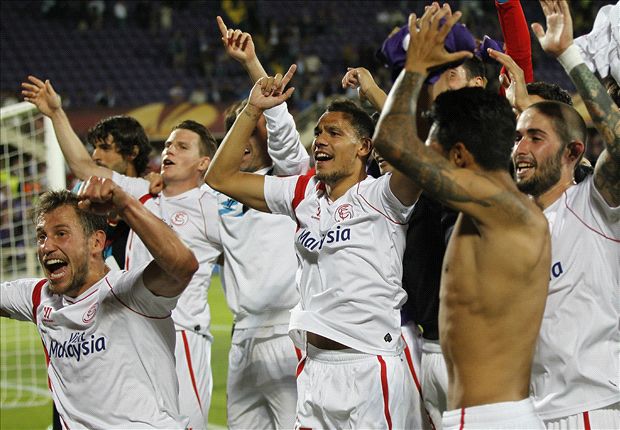
COMMENT: The Chelsea manager's words have led him to contradict himself once again and attempt to deny a team well worthy of Champions League football a spot in the competition
Around this time last season, Jose Mourinho lambasted 'football philosophers' as his Chelsea team prepared to face Atletico Madrid in the Champions League. His ire was focused on people who seem to have a comment on anything and everything related to the game.
The irony isn't lost on Jose; most of the time he knows precisely what he is doing and his statements are calculated with an ulterior motive.
And then on other occasions, he starts trouble just for kicks. His recent comments about the relative strength of La Liga are tired, clichéd and are lacking in facts, similar to the philosophers he chose to target.
Following Chelsea's title triumph a few weeks ago - which, in the end, proved extremely comfortable - Mourinho said: "In other countries you can win matches when you are resting. In Spain and in Italy, I won lots of matches resting.
"This season I rested a few players against Bradford and I lost against Bradford. And that is English football. This is the reality of the Premier League. It's not just about the number of matches, it's the intensity. The difference between the Premier League and La Liga is huge. Would Barcelona or Real Madrid win the Premier League? Maybe yes. Maybe not."
But here, Mourinho is missing the point entirely. Barcelona and Real Madrid have dominated the latter stages of the Champions League since 2009 but the achievements of the other sides, those that don't have the unlimited resources of the big two, are also highly impressive.
Atletico Madrid were within 30 seconds of winning the Champions League last season, while for the best part of a decade Valencia regularly reached the latter stages. Malaga enjoyed just one run in Europe's top competition but missed out on the semi-finals only due to a last-minute Borussia Dortmund goal.
Sevilla, Europa League finalists once again this year, Villarreal, Athletic Bilbao - the theme isn't the relative power of the teams involved but rather their ability to compete on multiple fronts with distinction.

Does Mourinho still have a chip on his shoulder when it comes to La Liga, given his unsavoury experience with Real Madrid? Indeed, he may be better placed at looking at the likes of Italy, Germany or the hapless France if he wishes to identify underachievement and teams undeserving of European spots.
Spain has produced 14 finalists since 2005 across the two major continental competitions. England are behind in second and even Mourinho admitted his concern about the form of his fellow Premier League teams in the five-year coefficient period.
"I am never happy when an English team loses in Europe," he said in February. "I work in this country and I may be affected by that in the future. We want to keep, year after year, the same number of teams in the Champions League and Europa League."
The Europa League has been reinvigorated by the introduction of Champions League qualification to the winner. But there has been much debate over whether Sevilla, who only managed to finish fifth in La Liga, should be entitled to the award.
Granted, Uefa's inconsistency over how many sides from one nation can compete in European competition in any one season led to Chelsea regaining entry from sixth after winning the Champions League in 2012, consequently denying Tottenham a place from fourth.
Yet the teams in the Premier League currently situated outside England's top four - namely Liverpool and Spurs - both had an opportunity to take a run all the way to the Europa League final. Where they failed, Sevilla excelled - why should they be denied Champions League football next season as a result?
Mourinho's propensity to open his mouth so often leads to a contradiction. He complains about La Liga being an easy league and yet the teams he must face week in, week out in England are falling well short of their continental counterparts. Which is it, Jose?
The fact is that Spanish clubs have triumphed in 30 of their last 33 European knockout ties - a success rate of 94 per cent. The system awards high performance in the tournaments that Uefa oversee. Sevilla will be competing to win their fourth Europa League since 2006, and Spain's seventh in the space of the last 12 years.
If that level of consistency doesn't deserve an additional place in Europe, what does?
0 comments: